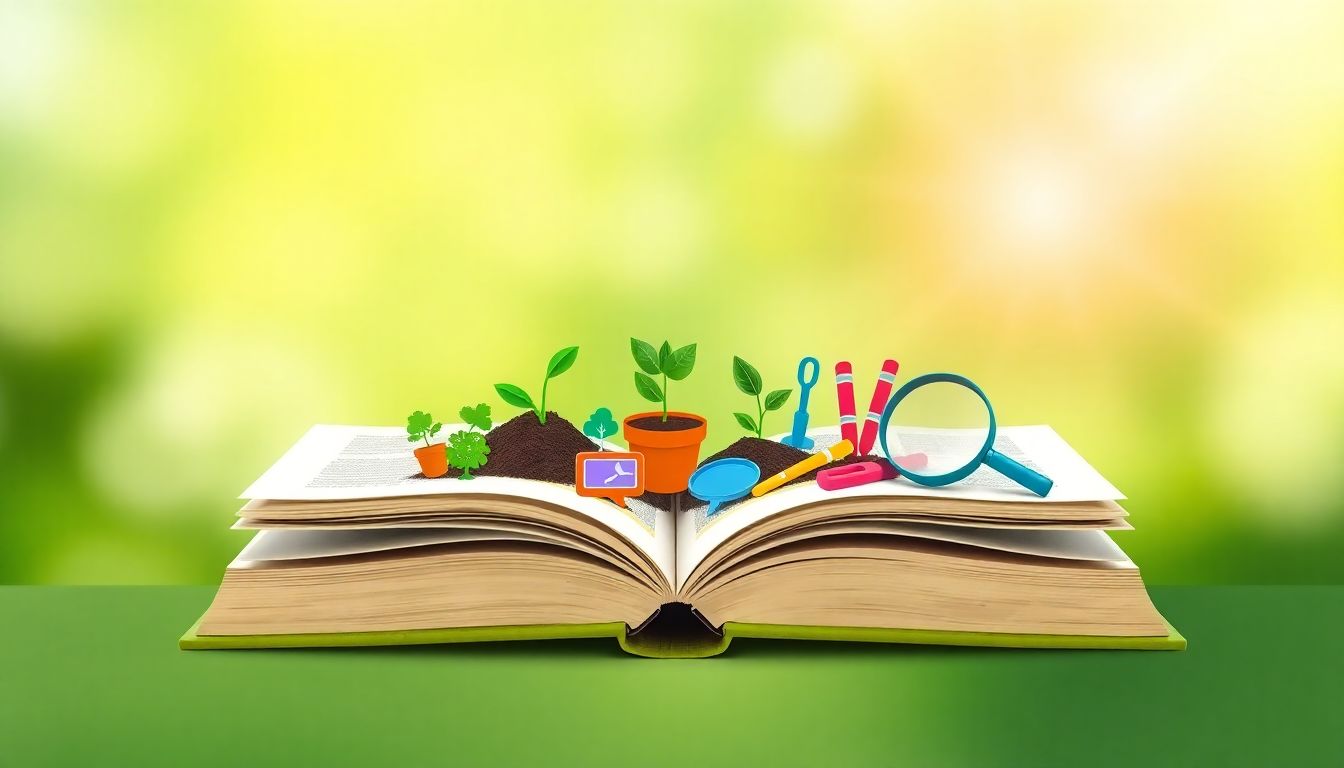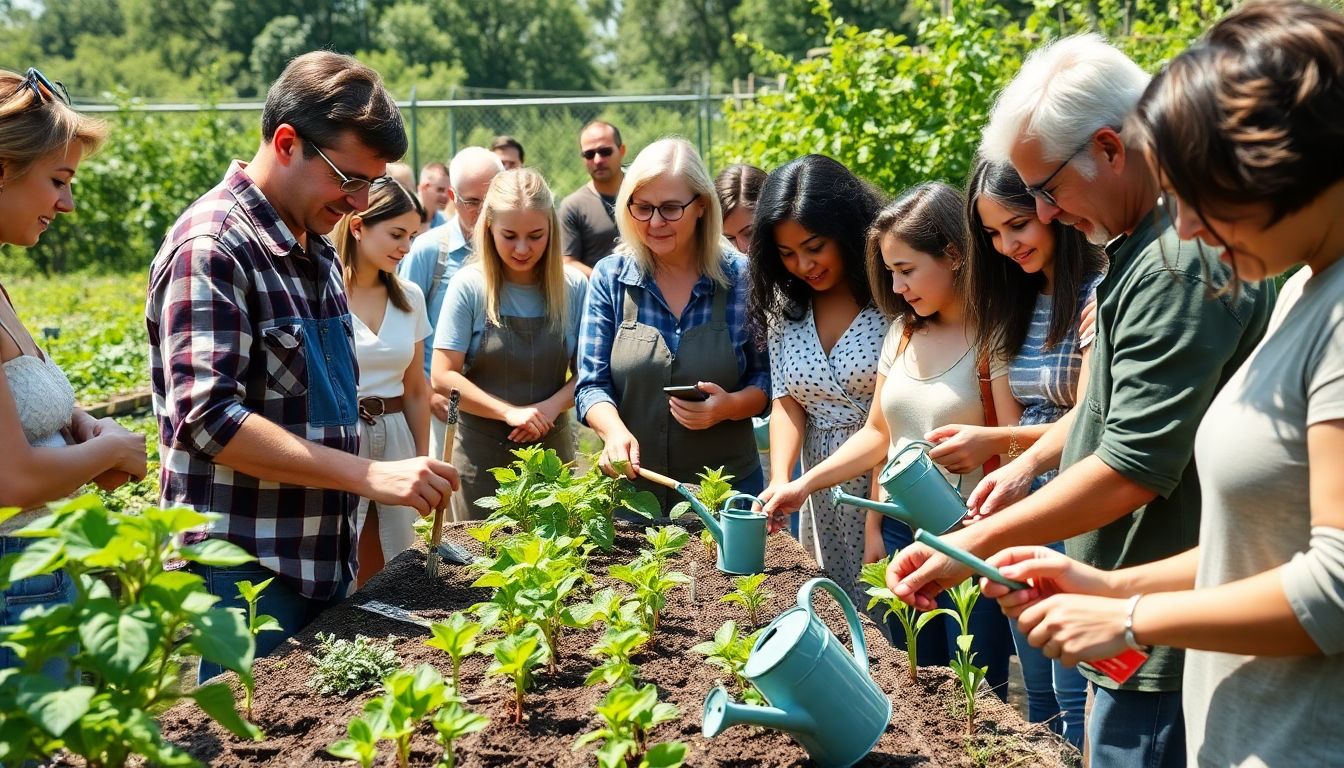Envision a garden where crops are so healthy, and colorful, thriving under without harsh chemicals. Your dream will become reality through the Organic Tips Training Program. You’ll learn how to grow a beautiful garden while showing concern to the environment, and enjoying nourishing and safe foods. Many people now become aware of how important it is to grow food in an organic way, for themselves and for the betterment of the planet.
Why Organic Gardening? Benefits & Beyond
Beyond all that, organic gardening is not just a passing trend. It is a more effective manner of promoting plants and the earth. Choosing organic has a number of great advantages over more traditional methods.
Health Benefits: Safety of Food and Nutritional Value
This is one of the important reasons for going organic: the food you consume becomes healthier. Organic gardening does not involve the usage of synthetic pesticides or fertilizers. So, you can enjoy a reduced risk of contaminating your food. Often, organic produce is rich in several vital vitamins and minerals. You are not only eating. You nourish your body.
Environmental Impact: Sustainability and Biodiversity
Consider what you are actually doing for the earth. Organic practices enhance better soil health and minimal use of water while providing habitat to local wildlife. Organic gardens become safe havens for bees, birds, and other symbiotic creatures that are crucial in a healthy ecosystem. By preventing toxic chemicals, you are safeguarding the world.
Conserve Money: Long-term Financial Benefits
Besides, going organic can save you costs. Composting converts kitchen waste into an enriching fertilizer. Stop seed harvesting from your plants to grow many next year. You will save yourself all the costly chemical fertilizers and pesticides from then on. On the long run, that adds up.
Essential Soil Preparation for Organic Success
Healthy soil is the basis of any good organic garden. Proper preparation of the soil is needed to get your plants thriving.
Soil Testing: Understanding the Needs of Your Garden
Testing your soil informs you about its needs. Simple soil test kits can be bought or samples can be sent to the lab. The results will show the pH level and also the nutrient availability. Knowing this helps you amend your soil with the right organic stuff.
Composting: Nature’s Fertilization
Composting is like magic for your garden. Create a mix of brown stuff – leaves – and green stuff – food scraps. Add a bit of water and turn on occasion. With time, rich compost will reward your efforts. Compost nourishes soil and improves its structure. It is a nature-friendly means recycled waste.
Natural Soil Amendments: Feed Your Soil Organically
Apart from compost, your soil can be fed with other things. For example, cover crops such as clover will add nitrogen to your soil. Green manure is the plant material that you incorporate into your soil. Further, there are bone meal and rock phosphate for the important minerals that they add while balancing and enriching your plants’ immediate environment.
Management of Pests and Diseases: The Natural Way
You can do pest and disease management with less harsh chemicals. There are many organic methods to keep your garden in good shape.
Companion Planting: Nature’s Defensive System
Some plant species help each other, and this is generally referred to as companion planting. For example, marigolds prevent certain pests that attack tomatoes from approaching the plant altogether. Basil enhances tomatoes’ flavor while repelling insects as well. Thus, growing differing plants together acts as a natural defender.
Beneficial Insects: Your Allies in the Garden
The truth is that not all insects are bad. Some of them are out there eating harmful pests that bother you. Ladybugs eat aphids. Praying mantises eat all kinds of insects. You can invite these helpers into your garden by planting flowers that they love. A diverse yard attracts a wide range of good bugs.
Natural Pest Control Methods: Organic Solutions
Organic sprays come in handy once pests have started causing problems. Neem oil works on smothered insects. Insecticidal soap kills soft-bodied pests. Diatomaceous earth cuts into the exoskeleton. Traps can also be set that can specifically capture pests.
Watering and Weed Control: Organic Strategies
Water and weeds are features of gardening. Controlling them is possible with organic methods.
Watering Techniques: Water Conservation
Watering in the right way will save water. Water heavily but infrequently. This will help the roots grow strong. Use a soaker hose or drip irrigation system. It will waste very little water, getting water just to the roots. Watering early in the morning will minimize evaporation.
Organic Mulch for Weed Control and Soil Health
The mulch will be a partner for your plants in the garden. It stifles weed growth, keeps the soil moist, and also provides organic matter as it decomposes. Straw, wood chips, or shredded leaves are recommended. Lay a thick layer around your plants.
Natural Weed Control Methods: Non-Chemical Solutions
Pulling weeds by hand works just fine in small gardens. A hoe permits you to weed between rows. Cover crops like buckwheat smother weeds. This set of mechanisms keeps your garden nice and clean.
Harvesting and Storage: Guarding Your Organic Bounty
Proper harvesting and storage of your produce will enhance its shelf life.
Harvesting Techniques: When and How to Pick
Knowing when to harvest certain fruits and vegetables is key. Tomatoes should be fully colored and slightly soft. Cucumbers should be firm and green. Leafy greens can be harvested as needed. Make sure the tool used to cut or pick is clean.
Organic Storage Methods: Ways to Keep Produce Fresh Longer
Store different produce using different methods. Roots like carrots and potatoes favor cool, shady storage. Leafy greens thrive in a cool spot in the fridge. Fruits can be frozen or canned for storage. All these methods will allow you to maintain an enjoyable harvest longer.
Conclusion
The Organic Tips Training Program gives you the knowledge to grow a healthy, productive garden, organically. You can improve your health, protect the planet, and save money. Ready to start? Sign up for the Organic Tips Training Program today.



